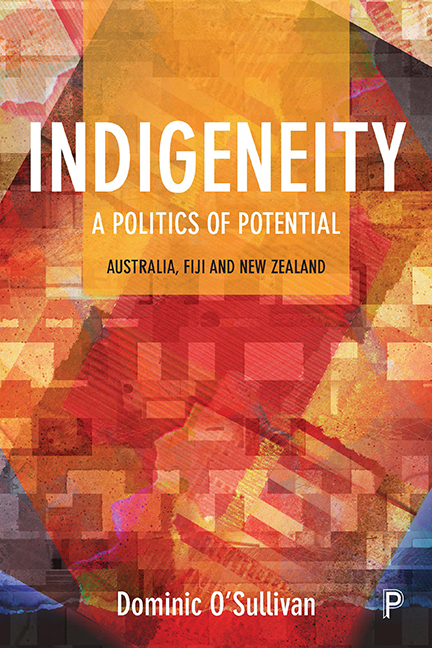Book contents
- Frontmatter
- Dedication
- Contents
- Acknowledgements
- Introduction
- one Reconciliation
- two The politics of indigeneity
- three Liberal democracy and differentiated citizenship
- four Liberal democratic inclusion
- five Indigeneity and contemporary globalisation
- six Economic development as differentiated citizenship: Australia
- seven Economic development as differentiated citizenship: New Zealand
- eight Economic development as differentiated citizenship: Fiji
- Conclusion
- References
- Index
Conclusion
Published online by Cambridge University Press: 05 April 2022
- Frontmatter
- Dedication
- Contents
- Acknowledgements
- Introduction
- one Reconciliation
- two The politics of indigeneity
- three Liberal democracy and differentiated citizenship
- four Liberal democratic inclusion
- five Indigeneity and contemporary globalisation
- six Economic development as differentiated citizenship: Australia
- seven Economic development as differentiated citizenship: New Zealand
- eight Economic development as differentiated citizenship: Fiji
- Conclusion
- References
- Index
Summary
The book's opening chapter described reconciliation as a theoretical framework from which contemporary indigenous politics is played out across Australia, Fiji and New Zealand; jurisdictions with marked contextual differences, but sharing a need for ordered and relationally just terms of association among indigenous peoples, the state and wider societies as they respond to British colonial legacies. While grounded in Christian public theology, reconciliation transcends the notion of a sacramental relationship between God and penitent involving sorrow, forgiveness and correcting broken relationships, to provide a metaphor for just intra-national relationships. Religious discourses of reconciliation have influenced secular indigenous politics in each jurisdiction. They help to rationalise the politics of indigeneity's juxtaposition with liberal democracy to position differentiated citizenship as a legitimate constituent of the liberal political arrangements that prevail in Australia and New Zealand and that the international community seeks to impose on Fiji.
It is from secular reconciliation that the book's concern for a theoretically defensible differentiated citizenship proceeds. This is because Australian secular politics finds recourse to policies of relational justice not just in the common law but also in reconciliation's moral presumptions. In New Zealand, these same presumptions are brought into policy practice with reference to the Treaty of Waitangi under which successive governments have offered apologies and recompense for land alienation and other breaches of extant rights of prior occupancy. However, in both jurisdictions reconciliation is variously understood and deep philosophical divisions remain over the ways in which indigenous peoples should be free to express their liberal democratic citizenship. Reconciliation's principal concern is to resolve those differences. It does so by turning to practical politics to work out the limits and possibilities for ‘living together differently’ – a process that is complicated and compromised in Fiji where Christian churches have, instead, contributed significantly to reconciliation's cooption into an aggressive and assertive indigenous nationalism. Indeed, Fiji provides an important case study in the constraints of religious idealism, as reconciliation's moral legitimacy and political efficacy are tested in ways that do not occur in jurisdictions where other groups’ relative power prevents the assertions of absolute indigenous paramountcy. The contrast with Australia and New Zealand shows the importance of stable political institutions to self-determination. Stability allows a coherent politics of indigeneity to form as both a theory of justice and a political strategy asserting the terms on which indigenous peoples wish to belong to the nation state.
- Type
- Chapter
- Information
- Indigeneity: A Politics of PotentialAustralia, Fiji and New Zealand, pp. 165 - 176Publisher: Bristol University PressPrint publication year: 2017

